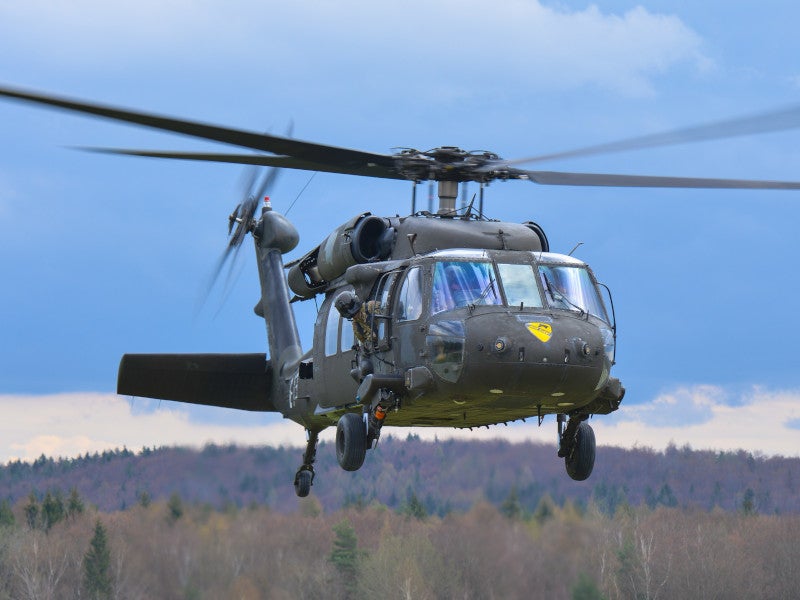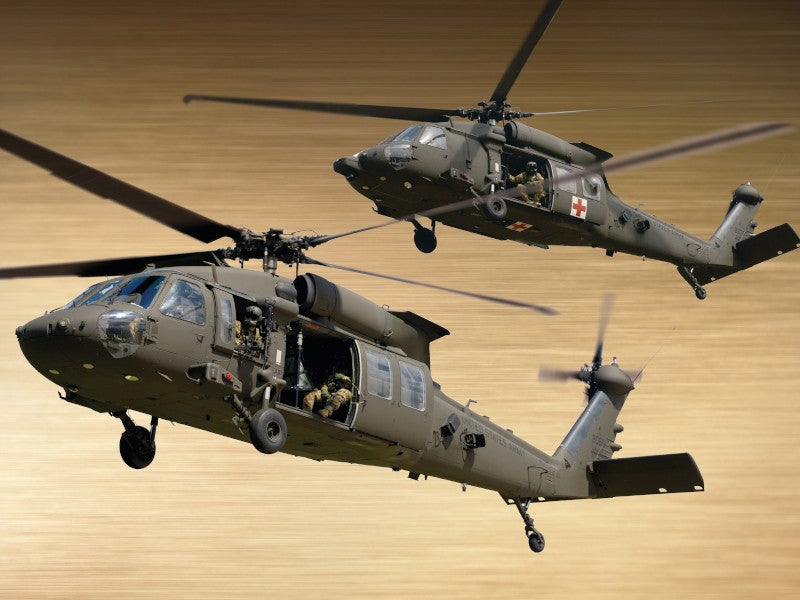UH 60 Helicopter Introduction: Every Little Thing You Need to Know
UH 60 Helicopter Introduction: Every Little Thing You Need to Know
Blog Article
The Effect of Sustainable Practices on the Future of Aircraft Operations and Emissions Decrease
As the air travel market deals with boosting examination over its ecological impact, the adoption of lasting techniques emerges as an essential pathway towards future airplane operations and discharges decrease. Innovations in lasting aviation fuels and improvements in crossbreed propulsion technologies stand at the center of this improvement, encouraging significant decreases in greenhouse gas exhausts.

Overview of Lasting Practices
Lasting methods in aircraft operations include a series of strategies focused on minimizing ecological impact while maintaining functional performance. These techniques are important in the aeronautics market's commitment to decreasing its carbon footprint and sticking to global environmental standards. Secret initiatives consist of optimizing trip paths to reduce fuel usage, improving maintenance protocols to make sure airplane operate at peak performance, and carrying out sophisticated modern technologies such as winglets and lightweight products that boost aerodynamics.

Engaging and educating staff on sustainability techniques likewise play an essential role, promoting a culture of ecological duty within organizations. In general, the combination of these lasting techniques not just aids minimize emissions however likewise boosts the long-lasting practicality of the aeronautics field, ensuring it meets the demands of both clients and regulative bodies while adding to international sustainability goals.
Cutting-edge Fuel Alternatives
Many cutting-edge gas options are arising as essential solutions to minimize the air travel market's dependence on traditional fossil fuels. Amongst these choices, Lasting Aviation Fuels (SAFs) have acquired considerable interest due to their possible to decrease lifecycle greenhouse gas exhausts by approximately 80% contrasted to conventional jet fuels. SAFs are originated from different feedstocks, consisting of waste oils, farming residues, and even algae, making them a functional alternative for the industry.
Another appealing option is hydrogen gas, which, when made use of in fuel cells, produces just water vapor as a by-product. This zero-emission possible presents a significant chance for decarbonizing flight operations, especially for short-haul flights and local airplane. Additionally, electrical propulsion systems are being checked out, leveraging battery modern technology to power airplane. While present battery ability restrictions variety and payload, ongoing innovations might soon make electrical trips sensible for particular applications - uh 60.
Last but not least, biofuels acquired from biomass are being checked out, offering an eco-friendly alternative that can be combined with traditional gas. Collectively, these innovative fuel options represent a crucial action toward accomplishing a sustainable aviation ecological community, aligning with international discharges reduction targets and boosting the sector's environmental stewardship.
Technological Innovations in Air Travel

Just how can technical advancements reshape the future of aviation? The integration of innovative modern technologies is critical in transforming airplane procedures, boosting efficiency, and lowering exhausts. Technologies such as hybrid and electrical propulsion systems are at the forefront, appealing significant decreases in fuel intake and greenhouse gas discharges. These systems leverage improvements in battery innovation and energy administration, enabling aircraft to operate with a lower ecological impact.
Additionally, the implementation of advanced materials, such as lightweight compounds, adds to enhanced aerodynamics and fuel effectiveness. Making use of man-made knowledge and device understanding in trip procedures optimizes course preparation and reduces gas melt by enabling real-time modifications based upon climate and traffic problems. Furthermore, the growth of independent and remotely piloted aircraft systems stands to revolutionize cargo and passenger transport, potentially increasing efficiency while minimizing human error.
Furthermore, lasting air travel technologies, consisting of innovative air traffic monitoring systems, can lower and enhance operations congestion, causing lower exhausts throughout trip. These innovations collectively stand for a paradigm change in my explanation air travel, promising a future where sustainability and operational effectiveness are intertwined, thus sustaining the market's commitment to minimizing its ecological effect.

Regulative Framework and Compliance
Due to the growing focus on ecological stewardship within the aviation market, the regulatory framework governing aircraft procedures is developing to advertise lasting practices. Regulatory bodies, such as the International Civil Air Travel Company (ICAO) and various national aviation authorities, are presenting strict standards aimed at lowering discharges and enhancing functional effectiveness.
These policies typically consist of the fostering of Lasting Air travel Gas (SAF), which has actually been acknowledged as a key component in attaining reduced carbon footprints. Conformity with these guidelines needs airline companies to carry out sophisticated innovations and functional techniques, such as optimized trip courses and improved air web traffic monitoring, to reduce fuel intake.
Additionally, the enforcement of discharges trading systems and carbon countering campaigns is coming to be increasingly widespread, compelling airline companies to check and report their discharges precisely. Non-compliance can result in considerable charges, thus pushing operators to prioritize sustainability in their organization models.
Inevitably, the advancing regulative landscape not only drives innovation and investment in eco-friendly innovations but also promotes a society of accountability within the aviation sector. As these structures continue to create, the focus on sustainable methods will certainly be integral to achieving the field's lasting ecological objectives.
Future Trends in Aircraft Operations
As the aviation industry adapts to an increasingly rigid governing atmosphere, future fads in aircraft operations are readied to concentrate on cutting-edge services additional info that even more improve sustainability and efficiency - uh 60. Key advancements will likely include the adoption of sophisticated air website traffic administration systems, which utilize real-time data and artificial knowledge to maximize flight paths, reducing fuel consumption and exhausts
An additional substantial fad is the boosted integration of lasting air travel gas (SAFs) These alternatives to conventional jet fuel, stemmed from renewable sources, can dramatically reduce lifecycle greenhouse gas exhausts. The market's dedication to SAFs will likely increase as airlines collaborate with gas manufacturers to ensure accessibility and cost-effectiveness.
In addition, the press in the direction of electrification and hybrid propulsion systems is acquiring momentum. Arising aircraft designs will incorporate these innovations, using quieter and much more reliable procedures, specifically for short-haul trips.
Verdict
Finally, the integration of lasting practices in aircraft operations holds substantial possibility for exhausts decrease and boosted effectiveness. The fostering of lasting air travel fuels, coupled with innovations in electrical and hybrid propulsion systems, is essential for minimizing lifecycle greenhouse gas emissions. Furthermore, maximizing flight paths and welcoming cutting-edge innovations add to a quieter and a lot more eco-friendly aeronautics field. Jointly, these initiatives line up with worldwide sustainability goals and lead the way for a greener future in aviation.
Developments in sustainable aeronautics fuels and innovations in hybrid propulsion innovations stand at the center of this makeover, promising substantial reductions in greenhouse gas emissions.Many innovative fuel alternatives are arising as crucial options to reduce the aviation market's dependence on traditional fossil fuels - uh 60. Among these choices, Sustainable Aeronautics Fuels (SAFs) have actually obtained considerable attention due to their potential to reduce lifecycle greenhouse gas emissions by up to 80% compared to standard jet gas.One more considerable trend is the enhanced assimilation of sustainable aeronautics gas (SAFs) The adoption of lasting aeronautics fuels, coupled with improvements in electrical and hybrid propulsion systems, is essential for lessening basics lifecycle greenhouse gas emissions
Report this page